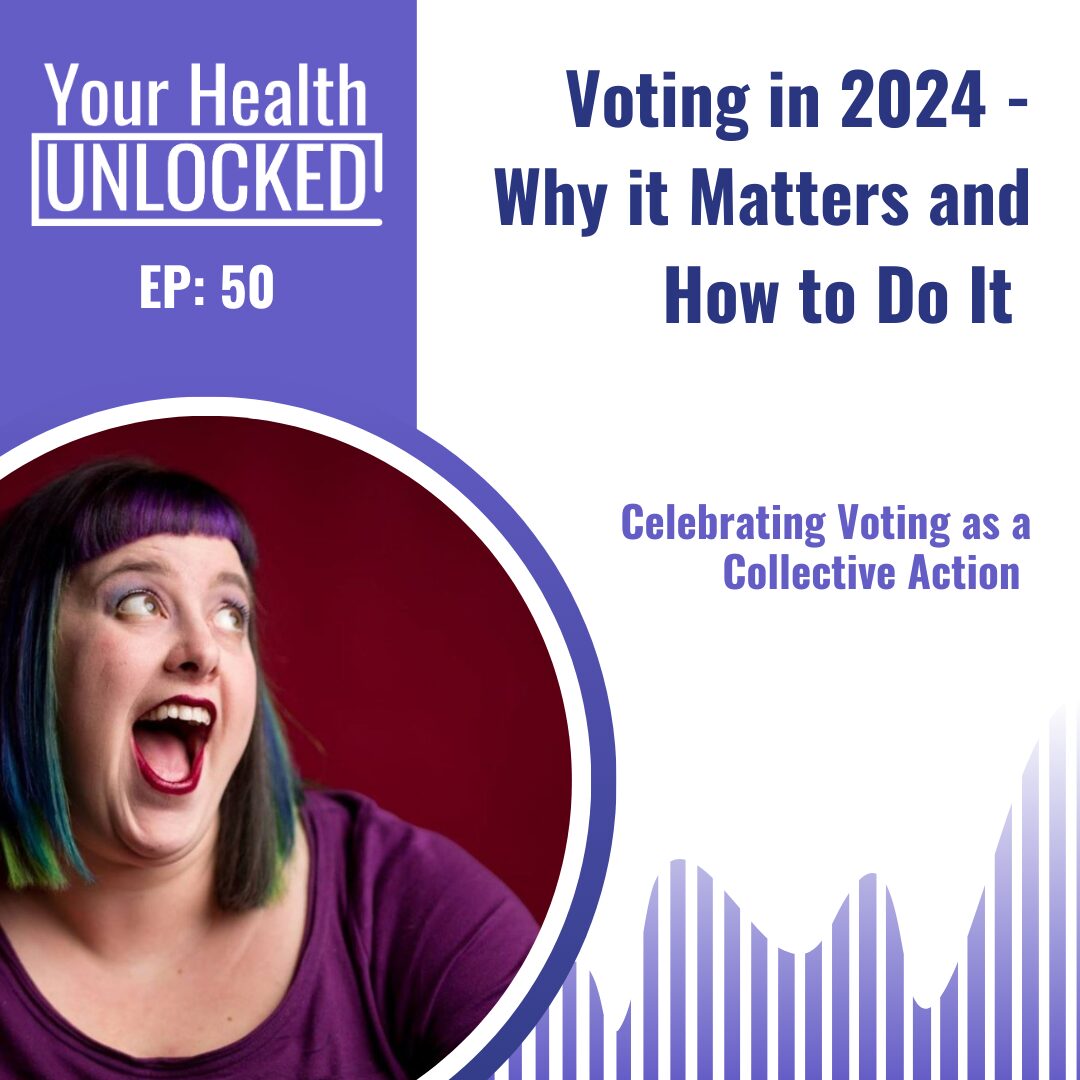
Your Health Unlocked Episodes
050: Voting in 2024 – Why it Matters and How to Do It
July 25, 2024
---
Women’s Health FAQs
Publication Date: May 21, 2021
By: NWHN Staff

Question: Can the COVID-19 vaccine affect your period?
With 45% of the US population vaccinated, many individuals have turned to the internet to share their vaccine side effects. Some women have reported experiencing increased cramping and abnormal period flows after being vaccinated. One NWHN staffer shared a similar experience after she got the vaccine.
With many individuals experiencing changes to their periods, women across the United States are asking the same question: can the COVID-19 vaccine affect my period, and should I be worried?
Answer: Well, it’s not clear. It’s possible that the vaccine may temporarily disrupt the menstrual cycle, but health experts suggest there is no reason to be concerned. There are a number of factors that might influence the menstrual cycle including diet, exercise, hormones and stress. In fact, last year the Washington Post reported that ObGyns started hearing many more reports of menstrual cycle problems in the early months of the pandemic – changes they believe are caused by stress. Anyone who has a uterus and bleeds knows that what’s happening in their life can through their cycle out of whack. Researchers still don’t understand all of the connections, but they know hormones produced by our brains communicate back and forth with hormones produced by our ovaries. And together, all of those hormones play a role in women’s stronger immune reactions, for better or worse. Women have stronger immune systems and are often better at fighting off infections, like COVID-19. Women also have better immune responses to vaccinations, which means they may feel worse after getting vaccinated, but that is only because their bodies are working overtime to produce lots of antibodies. Theoretically, this extra-strong response to a vaccination could affect the intricate balance of hormones and lead to disruptions in the menstrual cycle.
One small study found that 28% of women with COVID-19 experienced changes in their menstrual cycle. That may seem like a significant number, but the sample size only included 237 women and the results of the study have yet to be replicated. The NWHN believes more data is needed before concluding that either the virus or vaccination definitely affects menstruation.
Disruptions to the menstrual cycle were not reported in the vaccine clinical trial data submitted to the FDA, but it is entirely possible that researchers failed to investigate the vaccine’s effects on menstruation. Dr. Allison Arwady suggests, “Most vaccine trials, most trials in general actually, unless they’re really focused on women’s reproductive health, may not even ask questions like that and that perhaps points to some biases in terms of how, you know, trials in general for medications, etc. are set up.” So true! Most vaccine trials fail to ask questions about women’s reproductive health, other than pregnancy, leaving the public with no information to address their concerns.
If you have recently been vaccinated, we encourage you to sign up for the CDC’s V-safe web survey. V-safe is an attempt to learn from the real-life experiences of hundreds of thousands of people who volunteer to answer a few questions via text message for the first few weeks after they’re vaccinated. Questions about menstrual cycles aren’t automatically included, but if you report having an “other” symptom, V-safe will follow up with more questions.
Another pathway is to submit your experience to the FDA Vaccine Adverse Event Reporting system (VAERS). We’re certain that the people who designed VAERS never expected to receive reports about menstrual cycle changes, but let’s educate them! If enough people submit reports to VAERS, the FDA may be able to provide a useful summary.
Again, if you are experiencing an abnormal period after getting vaccinated there is no reason to be concerned. These changes are only temporary! But if any changes persist please consult a trusted healthcare professional. For more information on COVID-19 and vaccine safety please reference the NWHN’s COVID-19 resource page.
***
The information on this site is not intended or implied to be a substitute for professional medical advice, diagnosis, or treatment. All content, including text, graphics, images, and information, contained or available through this website is for general information purposes only.
Updated 2023
